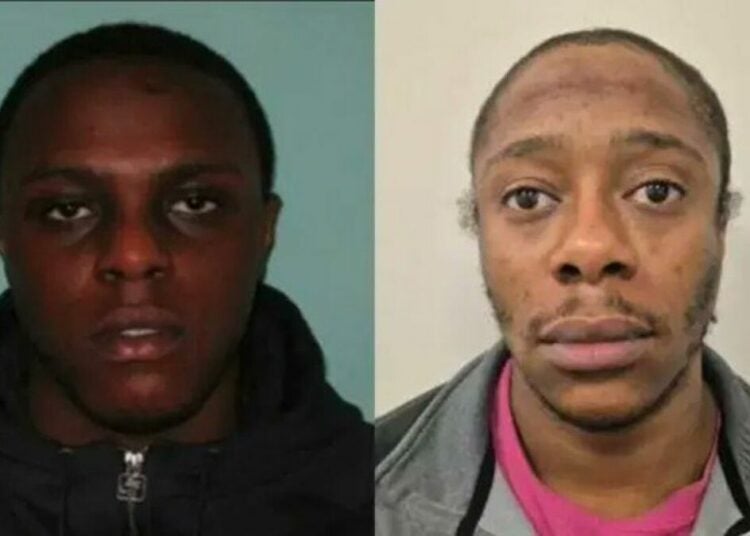A United Kingdom court has handed life sentences to Lekan Akinsoji and Sundjata Keita, both 27-year-old men, for the murder of 21-year-old Ahmed Deen-Jah in east London.
The conviction emerged following a trial at the Old Bailey, where Akinsoji and Keita were found guilty on October 9, 2025. On Friday, October 24, the judge sentenced them both to life imprisonment, giving Akinsoji a minimum term of 28 years and Keita 22 years.
The murder dates back to April 2, 2017, when Deen-Jah was stabbed during an unprovoked assault in a convenience store near Custom House station, Newham, east London. CCTV footage showed Deen-Jah entering the shop, then returning moments later followed by a man in dark clothing and a balaclava, who chased and fatally stabbed him.
Earlier in the investigation, Akinsoji and Keita were arrested but released as inquiries continued. The case was reignited in 2023 through a forensic review. Key breakthroughs included DNA evidence linking the suspects to the crime scene and placing Keita’s phone inside the car used during the murder.
Investigators also found that the vehicle had later been driven to Epping Forest and set ablaze.
According to prosecutors, the killing was not random but formed part of gang-related “ride-out” violence in east London.
Detective Superintendent Kelly Allen, who led the case, expressed hope that the sentences will bring some measure of closure to Deen-Jah’s family, noting they had waited nearly a decade for justice. She described the attack as “cold-blooded and unprovoked,” and lamented that the suspects had evaded detection until forensic advances unravelled their involvement.
Deen-Jah’s family, who attended the sentencing, spoke of their profound grief and long struggle for justice. His father, Abubakar Jah, said the family had been shattered, especially after his younger son, Junior, was also murdered in April 2021 in a nearby area.
“Losing both of my sons has caused the most unbearable hurt and pain to me and my family,” Jah said.
His mother, Hawa Deen Conteh, described her son’s death as an act of “senseless violence” that forever altered the family’s life. She expressed the hope that no other family would have to suffer such heartbreak.
During the trial, it was revealed that ten days before the murder, Akinsoji appeared in a video titled “Armed and Ready,” rapping, “No face, no case, no evvy (evidence).”
Prosecutors argued that the video was indicative of premeditation and an attempt to evade accountability.





